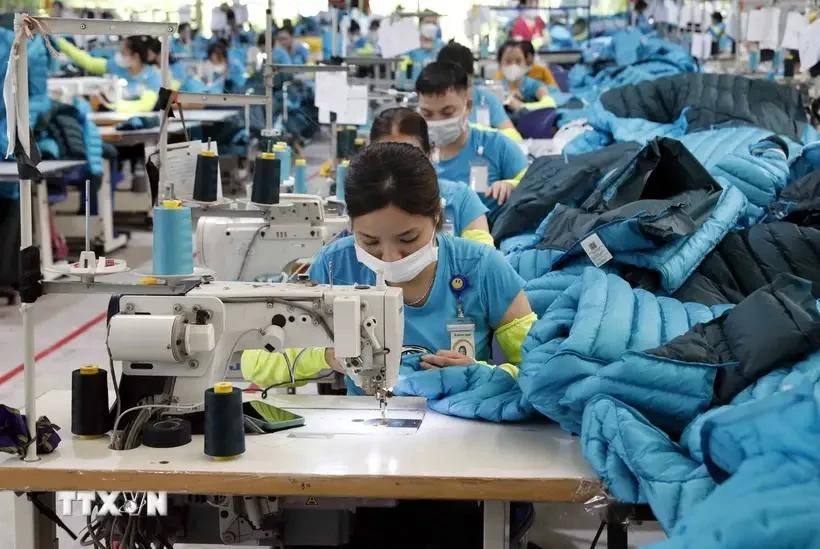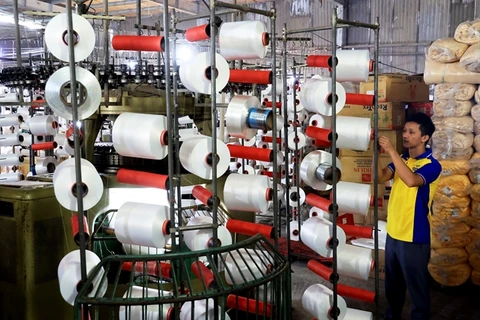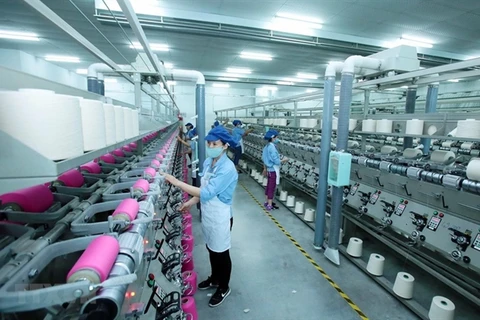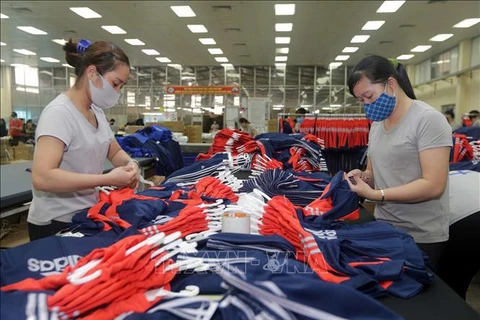
HCM City (VNA) – Garment and textile enterprises must develop new management methods and renew their production technologies to well adapt to new challenges like small and rapid orders as well as labour shortages, experts have said.
Speaking at a ceremony held to globally launch the Arus overlock machine from China-based Jack Technology in Ho Chi Minh City on June 16, Nguyen Thi Tuyet Mai, Deputy General Secretary of the Vietnam Textile and Apparel Association, said though businesses have large orders, they are facing new challenges.
For instance, customers are more likely to place low-priced small orders with quick turnaround times or demand a more diverse range of products to choose from.
Markets such as the EU and the US have strict requirements in terms of green production, she said.
The industry is also facing a labour shortage, needing around 500,000 people for manual labour, managerial and designing roles.
She said Vietnamese businesses need to streamline their operations, adopt new technologies and apply automation to enhance quality and be able to fulfil small orders.

According to Jack Technology, when textile and garment customers are placing small orders with rapid deadlines, businesses stuck with old production methods will struggle.
Tran Chi Gia, Director of Meko Garment Joint Stock Company, said his buyers are more likely to pay less for manually produced items, and his company has problems hiring young workers while the productivity of older employees is slowly falling.
His business is focusing on upgrading production, replacing old technologies with new, automating, and investing in product design to help it fulfil small high-value orders.
Vu Duc Giang, chairman of the Vietnam Textile and Apparel Association (VITAS), said the industry targets exports of around 44 billion USD in 2024. As of the end of May, it had already exported over 15.8 billion USD worth, up 4.3% year-on-year, he said.
This was owed to large markets such as the US and Europe being able to control inflation, driving up demand, he said.
Vietnam’s textile and garment businesses have also been proactive in diversifying markets and finding new customers./.






















